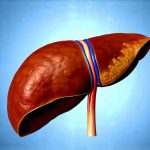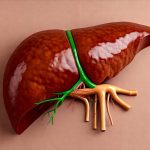The liver is often called the workhorse of the body, silently performing hundreds of essential functions daily. From detoxifying harmful substances to processing nutrients and producing vital proteins, its role in maintaining overall health is paramount. However, modern lifestyles – filled with processed foods, environmental toxins, and potentially excessive alcohol consumption – can place a significant burden on this crucial organ. Many people don’t realize the profound impact diet has on liver health; what we eat directly influences its ability to function optimally. Creating a liver-friendly meal plan isn’t about restrictive dieting or deprivation but rather embracing nourishing foods that support detoxification, reduce inflammation, and promote regeneration.
This article aims to provide a practical guide to crafting a weekly meal plan specifically designed to ease the load on your liver and encourage its natural healing processes. It’s important to understand this isn’t intended as medical advice; it’s a general framework for incorporating more supportive dietary choices. Before making significant changes to your diet, especially if you have pre-existing health conditions, consulting with a healthcare professional or registered dietitian is always recommended. We will explore key food groups, offer sample meal ideas, and outline simple strategies for integrating liver-supportive nutrition into your everyday life. The goal isn’t perfection but progress—small, consistent changes can yield significant benefits over time.
Understanding Liver-Friendly Nutrition
A liver-friendly diet prioritizes foods that are easy to digest and minimize the strain on the organ’s detoxification pathways. This means reducing processed foods, excessive sugar intake, unhealthy fats, and alcohol. Instead, focus on nutrient-dense whole foods rich in antioxidants, vitamins, and minerals. Cruciferous vegetables, like broccoli and cauliflower, contain compounds that aid in detoxifying processes, while lean proteins provide the building blocks for liver cell repair. Fiber plays a vital role too; it helps eliminate toxins through healthy digestion and prevents buildup in the system. Hydration is also essential – water is crucial for all bodily functions, including the liver’s detoxification efforts.
The concept of ‘liver-friendly’ isn’t about eliminating entire food groups but rather making informed choices within each category. For example, swapping refined carbohydrates (white bread, pasta) for complex carbohydrates (whole grains, sweet potatoes) provides sustained energy without spiking blood sugar levels, which can stress the liver. Similarly, choosing lean protein sources like fish or poultry over processed meats reduces the intake of harmful substances and saturated fats. The key is balance and moderation, focusing on a variety of foods to ensure adequate nutrient intake. Think about building meals around whole, unprocessed ingredients whenever possible – this simple approach forms the foundation of a liver-supportive diet.
Finally, certain foods are known for their specific benefits to liver health. Foods containing choline, such as eggs and soybeans, support fat metabolism in the liver. Berries, rich in antioxidants, combat oxidative stress and protect liver cells from damage. And healthy fats like those found in avocados and olive oil provide essential nutrients and promote overall well-being. It’s a holistic approach—not just what you avoid but also what you actively incorporate into your diet that matters most.
Building Your Weekly Meal Plan
Creating a weekly meal plan can seem daunting, but it doesn’t have to be complicated. Start by brainstorming liver-friendly options for each meal: breakfast, lunch, and dinner, as well as snacks. Consider incorporating batch cooking techniques—preparing larger quantities of food on the weekend to save time during the week. This allows you to easily assemble healthy meals even when your schedule is busy. A simple template can be incredibly helpful – list out seven days and then fill in each meal with a pre-planned option, focusing on variety and nutritional balance.
Here’s a sample plan as an example:
* Monday: Oatmeal with berries and nuts (breakfast), Salad with grilled chicken and avocado (lunch), Baked salmon with roasted vegetables (dinner).
* Tuesday: Greek yogurt with fruit and granola (breakfast), Leftover baked salmon & veggies (lunch), Lentil soup with whole-grain bread (dinner).
* Wednesday: Smoothie with spinach, banana, and protein powder (breakfast), Turkey breast sandwich on whole-wheat bread (lunch), Chicken stir-fry with brown rice (dinner).
Remember to personalize this based on your preferences and dietary needs. Don’t be afraid to experiment with different recipes and ingredients—the goal is to find sustainable options that you enjoy. A meal plan should feel supportive, not restrictive. Utilizing online resources for healthy recipes can also provide inspiration and streamline the planning process. The more prepared you are, the easier it will be to stick to liver-friendly choices throughout the week.
Incorporating Liver-Boosting Foods
Focusing on specific foods known to support liver health is a fantastic way to enhance your meal plan. Artichokes, for example, contain compounds that promote bile flow, aiding in detoxification. Beets are rich in antioxidants and nitrates, which improve blood flow and protect the liver from damage. Garlic and onions contain sulfur-containing compounds that activate liver enzymes involved in detoxification. Including these foods regularly isn’t about magical cures but rather providing your liver with the tools it needs to function optimally.
Adding herbs and spices is another simple way to boost nutritional value. Turmeric, known for its anti-inflammatory properties, can protect against liver damage. Ginger aids digestion and reduces inflammation. Cinnamon helps regulate blood sugar levels. Don’t underestimate the power of these small additions – they can significantly impact your overall health and well-being. Experiment with different flavor combinations to keep your meals interesting and enjoyable.
Hydration & Healthy Fats
Adequate hydration is paramount for liver function. Aim for at least eight glasses of water per day, or more if you’re active. Herbal teas, such as dandelion root tea (known to support liver health), can also contribute to your fluid intake. Avoid sugary drinks and excessive caffeine, which can place additional stress on the liver. Water isn’t just about quenching thirst; it’s crucial for flushing out toxins and supporting metabolic processes.
Healthy fats are essential for liver health but choosing the right types is vital. Avocados, olive oil, nuts, and seeds provide essential fatty acids that support cell regeneration and reduce inflammation. Avoid trans fats found in processed foods and limit saturated fats from red meat and dairy products. Incorporating omega-3 fatty acids, found in fatty fish like salmon and flaxseeds, can also protect against liver damage. Remember—fat isn’t the enemy; it’s about choosing healthy sources and consuming them in moderation.
Reducing Liver Stressors
Beyond dietary choices, consider other lifestyle factors that impact liver health. Minimize alcohol consumption – even moderate drinking can place a strain on the organ. Avoid unnecessary medications and over-the-counter drugs whenever possible, as they are often processed by the liver. Manage stress levels through techniques like meditation, yoga, or deep breathing exercises. Chronic stress can disrupt hormonal balance and negatively affect liver function. Prioritizing self-care is an investment in your overall health, including the well-being of your liver.
Furthermore, be mindful of environmental toxins. Limit exposure to pesticides, herbicides, and cleaning chemicals. Choose organic foods whenever possible to reduce pesticide intake. Ensure proper ventilation when using household cleaners. These seemingly small steps can collectively lessen the burden on your liver’s detoxification system. Finally, regular exercise promotes blood flow and improves overall health, contributing to a healthier liver. A holistic approach—integrating diet, lifestyle, and stress management – is the most effective way to support optimal liver function.


















